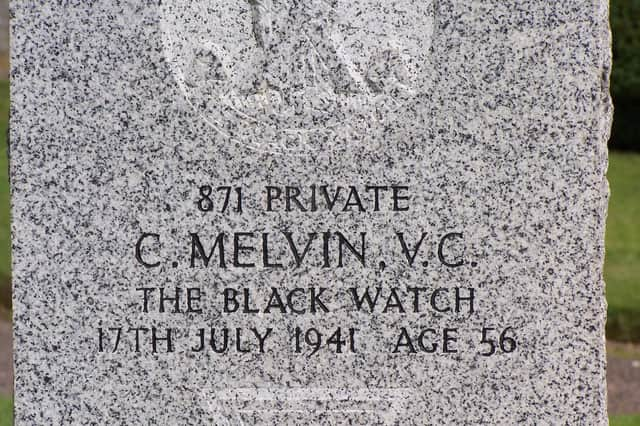Gable Ender - A tragic end for a modest Angus war hero


Melvin worked on the land and then as a tenter in Kirriemuir before joining up as a regular in the 2nd Battalion Black Watch in 1905. After serving in India his time was up and he was returning to Britain when World War I broke out. His regiment was landed in France and Melvin found himself engaged in the fiercest fighting.
He took part in the Battle of Mons and was wounded on May 9, 1915. He was wounded on two more occasions but always returned to action.
Advertisement
Advertisement
As 1915 drew to a close the battalion was sent to fight the Turks in Mesopotamia. On the face of it, it seemed a better posting than the cold and mud of Flanders but war in the east seemed depressingly familiar for the first few months.
On April 21, Melvin, finding himself and his compatriots pinned down, raced across open ground in the face of a hail of rifle and machine gun fire. Reaching the trench he proceeded to fire at the enemy, killing one and possibly a second. As others returned fire, he leapt into trench with his bayonet in his hand as his rifle had been damaged and his bayonet couldn’t be fixed.
In the face of this attack, resulting in the death of another two enemy soldiers, most of the enemy retreated to their reserve line leaving Melvin to take the remaining nine men prisoner. One was wounded and Melvin tended his wounds before returning to his own lines with his prisoners while under rifle and machine gun fire and a heavy artillery barrage. He delivered his prisoners to an officer before stocking up with ammunition and reporting to his platoon sergeant.
His CO presented him with a silver watch for his bravery and, in a letter home, Melvin mentioned the watch before adding modestly, “and something else mother, but I don’t know what yet.” That something else proved to be the Victoria Cross.
Advertisement
Advertisement
In later life it would appear that all was not well with Melvin who had undoubtedly been affected by his traumatic experiences. His obituary, in the Kirriemuir Free Press, reported he had died at Sunnyside Hospital near Montrose on July 17, 1941 “after a prolonged illness”.